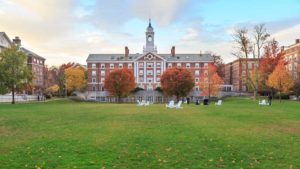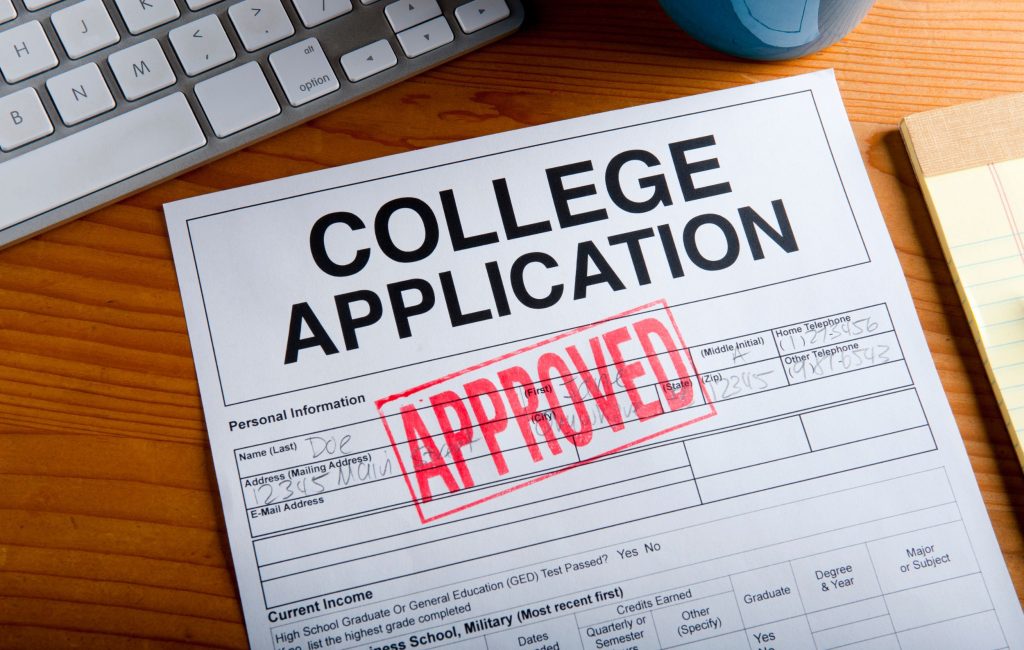Getting into college is something that almost every North American teenager aspires to do. Many have dream schools that have been chosen for various reasons, in which they have prepared nearly their entire lives to get into. Through studying, working hard, and putting in many hours and sleepless nights throughout high school to get straight A’s. Or perhaps through volunteering, working for free in internships, or working part-time jobs to save up to pay their way through college. Basically, many are willing to do nearly anything possible to appear to be the best candidate possible. And maybe they are.

However, unfortunately, often times, all of that effort isn’t so important anymore. It’s how influential and rich your family is. And there’s simply nothing you can do about it.
Kaplan Test Prep surveyed college admissions officers at 400 of the top colleges and universities, and the saddening truth is that 25% of them have actually admitted the pressure felt to accept applicants based on their connections, regardless if they were a suitable fit for the school’s standards. If you have family that attended your college of choice, you also have much of the work done for you.
The same survey by Kaplan Test Prep revealed that 16% of college admissions officers give priority to the nuclear family of alumni. This survey proves the unfortunate situation at hand. Colleges are more preoccupied with their self-interest, taking in applications who will benefit their college in one way or another, perhaps financially, or with the intention of keeping a certain reputation and keeping the college legends alive.

This is a very difficult subject to justify on their side, as well as to deal with on the other side for those less fortunate, however no less deserving. Many colleges will argue that this is not a common thing to do, and that upon it’s rare occurrence, it does only good for the wellbeing of everyone.
For example bringing in scholarship money for those deserving and in need, which is something that colleges have often claimed to be of greatest importance; to give minorities the chance of higher education. However, this idea has been seen as one of the biggest reasons for the large gap of college graduation between the rich and the poor.

Many colleges claim that they will never hold a student’s financial inability as a factor in their acceptance. Although this still does not make things completely fair, as they certainly do take a student’s financial ability as a large acceptance factor. Certain universities will in fact save spots for applicants, known as ‘development admits’. This idea is that students who do not meet the acceptance criteria, but come from wealthy families are accepted with the hope that their families will donate big.
Both public and private universities are doing this, accepting slackers who come from influential and powerful families, arguing that it is only a small amount, and that is for the best of the institution as a whole. One of these institutions includes Duke University.
An actual example of this is with applicant Maude Bunn, who despite her boarding school educating and families effort to provide her with a private tutor, simply was not able to score the required amount on the SAT to be accepted to Duke University. However thanks to her family, who made a fortune on coffeemakers, she was accepted. Following her acceptance, her parents became co-chairmen of the university and are quoted saying ‘’My child was given a gift, she got in, and now I’m giving back’’.
However she refuses to share how many she has given to Duke, and at the same time Duke refuses to admit that it has given an acceptance for a donation, nothing that gifts from parents are used to upgrade the institution and provide financial aid for others. But where do we draw the line? How does one ever become rich and legendary if they are not given a fair opportunity to excel. It is a vicious and repetitive cycle.

Wealthy students also have admissions advantages in many other forms that are not directly influenced by college admissions officers. First of all, the application process is very expensive, as each school requires a hefty fee just to send in the form. This does not really leave a worthy, intelligent, and hardworking student the opportunity to apply to as many schools as his wealthy counterpart. He has to narrow down his options, decreasing their acceptance chances seriously. And the applicant most likely wished they could visit a variety of schools, but this is also a pricey endeavor to take the trip across the country.
In addition, many wealthy children have the opportunity to speak to counselors to help them with the selection and admissions process. This inability to gain a fair amount of support and guidance can also be seen in the student’s family. Applications coming from wealthy families most likely have grown up with education being drilled into their brains as the most important and have been given the proper tools and guidance to be best-ensured acceptance at the college of their choice. Even the most intelligent application, even if he comes from a low economic status family, and regardless of college’s claims to want to accept all kinds, he will inevitably be at a disadvantage compared to wealthy students. All things being said, unfortunately in today’s day in age, wealth seems to have taken over brains in college admittance.

